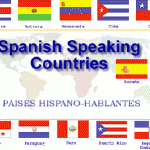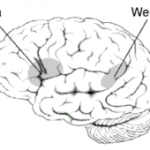Blog 1
Growing up my parents raised me to speak English because they didn’t want me to go through their difficulty they experience when trying to communicate in English. My mom is a native speaker of Tagalog while my father speaks in Pidgin/Hawaiian slang and little Japanese but either way their English is considered poor. As years past my parents realized they made a mistake of just teaching me English and found out it was better to be accustomed to other languages. They began speaking to and teaching me in their native tongue but they were a bit late. I’m able to understand Tagalog but have difficulty responding back and I just rejected Pidgin all together because it’s not useful unless you live in Hawaii. Understanding Tagalog has it’s up and downs. It helps me know what my mother wants when she can’t communicate properly in English and let’s me know when people are talking bad about me. I work in retail and knowing Tagalog makes Filipino customers engage with you more but also wanting discounts and such.
Besides picking up Tagalog, I decided to learn Japanese because it’s a lost language within my father’s side of the family. Overall Japanese is a difficult language to learn but learning the culture and customs have been worthwhile. Being a native of San Diego, it just makes sense to be familiar with “our slang.” Talking in slang is favorable in some cases because it makes more easier to communicate with your peers and appear more approachable but obviously talking in slang usually doesn’t work in your favor when talking to adults unless they’re okay with it.
Through my other experiences I learned the language can just be a burden. I experienced this within my own family because I don’t speak Pidgin or how my Hawaiian relatives do so our communication tends to be broken or just listening to them tends to be annoying. In school I’ve had groups where some members rather speak in their native tongue leaving either me and/or multiple members left out of the group work. At work, language also tends to be an issue if they don’t speak English. I’ve had customers communicate extremely slowly or fail entirely altogether and get both frustrated and mad at me and belittle me. So my language experiences are changing each day.




 D5 Creation
D5 Creation
Very interesting linguistic background! You (and your father) may be interested to know that– from a linguist’s point of view– Hawaiian Pidgin English is considered a fully worthy language in its own right and not just “bad English”. Check out the Wikipedia article on it:
http://en.wikipedia.org/wiki/Hawaiian_Pidgin
-dsb